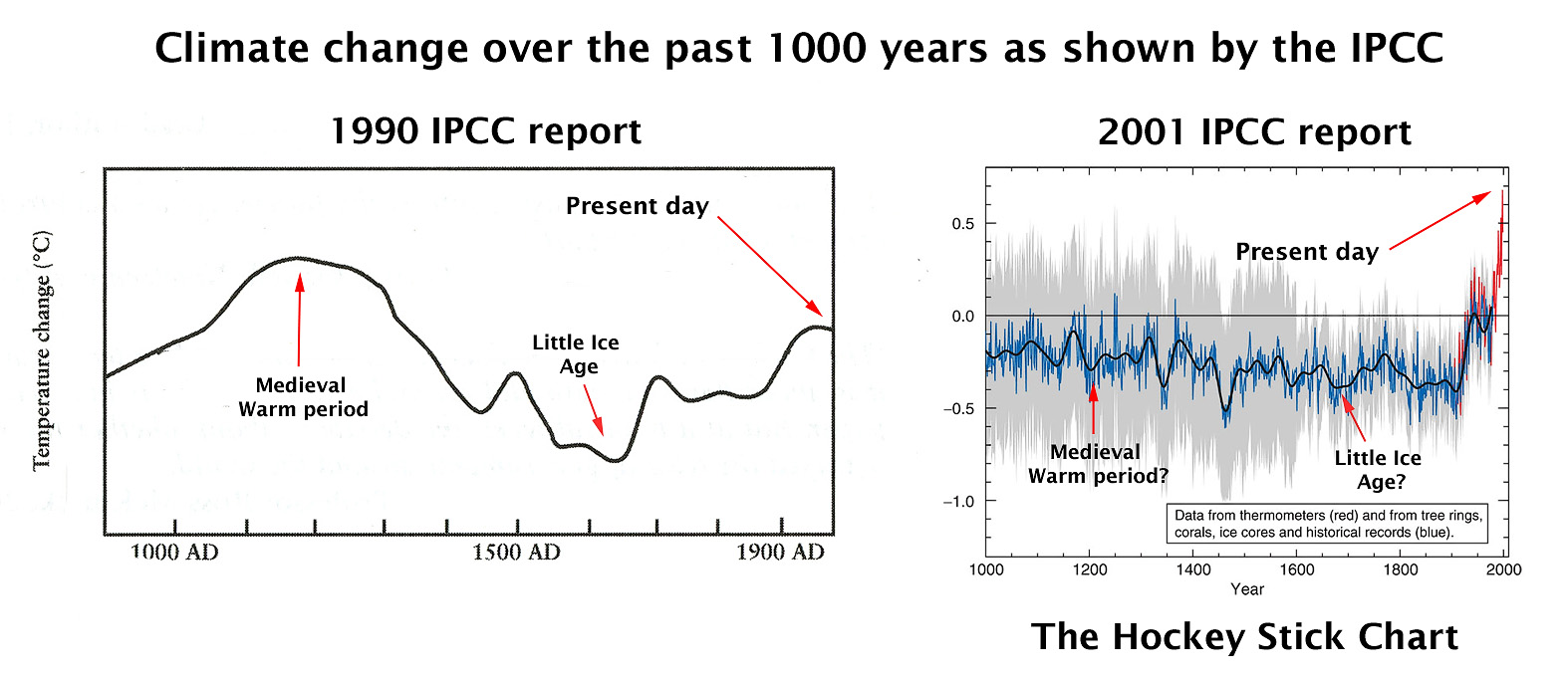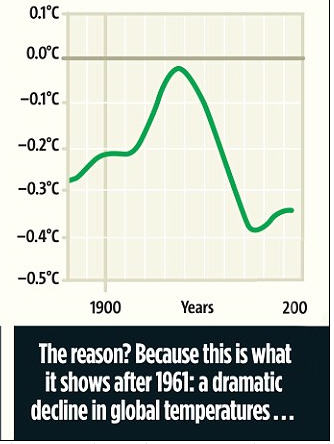Michael Mann of Penn State isn't happy. Everyone who had any sort of a clue knew his hockey stick regarding global warming wasn't literal but it also wasn't unethical. An internal investigation cleared him of any wrongdoing despite the unfortunate use of the word "trick" by researchers referencing his methods and "hide the decline" has become something of a rallying cry for detractors. But he is getting made fun of just the same and he doesn't like it.
It's not 2006 any more, that's for sure. Back then, William Gray, renowned hurricane forecaster and Emeritus Professor, simply corrected Al Gore in his "An Inconvenient Truth" claim that Hurricane Katrina was a result of global warming and he endured "hostile questioning, legislative probes and attacks by colleagues" with very little fanfare.
But Mann is not having any of it. He claims the video defames him.

Putting aside the First Amendment issues and that there is no Constitutional right not to be parodied, though Mann seems to think there is, is a lawsuit really making his point? I would never have heard about this video except the creators got sued for it. And a group called No Cap and Trade is over the moon about the lawsuit because that would give them full discovery on Mann's work.
What is the drama about the hockey stick suddenly? Hey, that hockey stick was being ridiculed here even in 2006, with claims that proof of global warming could be seen in the shrinking size of bikinis and that the hockey stick curve of Elvis impersonators was also alarming.
Well, the hockey stick was not faked but it was composed of data that matched the scientific topology they wanted to achieve. When temperatures did not match up (and how could they? There were no reliable thermometers 1000 years ago) they used tree ring data, for example - but where the tree ring data would have shown a decline, they used accurate temperature results.
The result? Confusion, even among the IPCC. Compare 1990 IPCC results versus 2001, when they began to descend into zealotry rather than sticking to science:

Obviously it was not unethical to combine that most accurate methods from one period with the most accurate methods from another, but astute researchers were concerned.

"Let us not try to over-egg the pudding," said East Anglia University's Keith Briffa of their Climatic Research Unit (CRU). And NASA's David Rind said it "looks like there were years around 1000AD that could have been just as warm", which everyone had known until the hockey stick came out.
Mann was cleared of wrongdoing by a Penn State panel. "The so-called 'trick' was nothing more than a statistical method used to bring two or more different kinds of data sets together in a legitimate fashion by a technique that has been reviewed by a broad array of peers in the field."
That won't be enough for hardcore skeptics because 'peers' could mean the very same people seeking to put agendas before science. And Professor David Hand, president of the Royal Statistical Society and the UK's leading statistician, doesn't think much of the hockey stick at all, not because he is a "denier" - the slur heaped on everyone who disputed the suspect numerical models in the past - but because it was just bad: “It used a particular statistical technique that exaggerated the effect [of recent warming].”
We've said for years here that numerical models in the hands of people who are not statistics experts have led to inconsistent results (and we have been criticized as "unreliable" by more militant science bloggers due to our unwillingness to drink the Kool-Aid regarding CO2 legislation) and William Gray has been saying it for much longer: "One reason may be that the advocates of warming tend to be climate modelers with little observational experience. Many of the modelers are not fully aware of how the real atmosphere and ocean function. They rely more on theory than on observation."
The only good that came from any of this is that climate change research is no longer squelching data that strays from CO2 hyperbole and can instead stick to science. The controversy does not detract from the volumes of legitimate data showing that global warming is a problem that will need to be addressed.
Let's hope Mann comes to his senses and drops the lawsuit and does not become any more of a poster child for advocacy-based science than he already is.




Comments